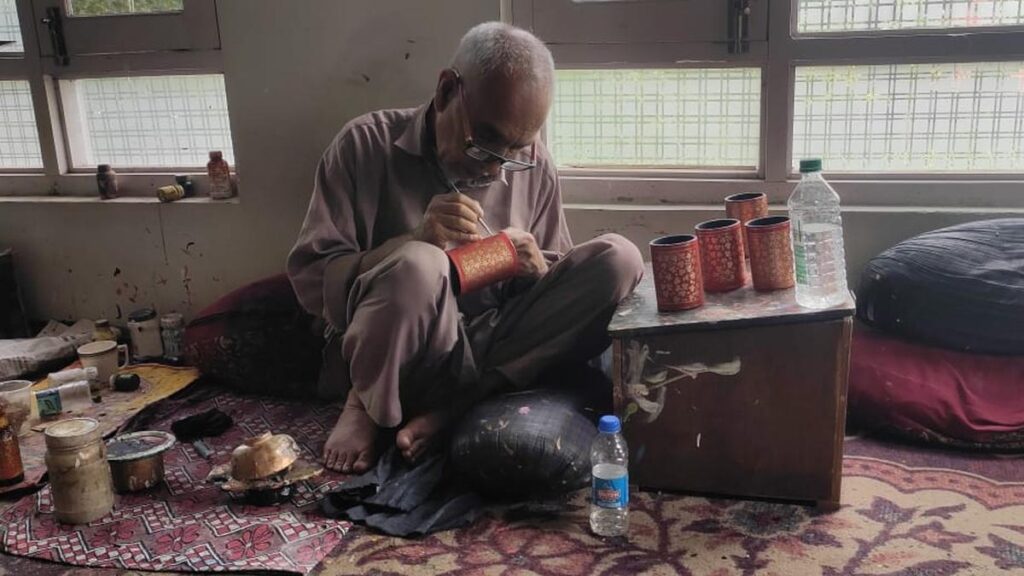
Ghulam Mohammad Mir, a papier-mâché artisan from Srinagar, in his workshop
| Photo Credit:
Gulzar Bhat
At a traders’ conclave in Srinagar last week, Union Commerce and Industry Minister Piyush Goyal said the government would consider reducing the Goods and Services Tax (GST) rate on various handloom and handicraft items, from 12 to 5 per cent, to support the struggling sector.
As Jammu and Kashmir completes eight years under the GST regime, there is a growing chorus from the region’s once-flourishing handicrafts industry calling for urgent tax relief.
Artisans and small-scale traders said the 12 per cent GST on many traditional craft products is crippling an industry already burdened by rising raw material costs, shrinking markets, and the aftermath of repeated disruptions. Currently, handloom and handicraft items priced at ₹1,000 or more are taxed at 12 per cent.
Declining craft
Ghulam Mohammad Mir, a papier-mâché artisan from Srinagar, told businessline that the financial strain caused by higher input costs and falling demand has made it increasingly difficult to sustain the craft.
“Taxes like GST on handloom and handicraft items have only led to reduced sales, shrinking profit margins, and growing disinterest among the younger generation,” he said.
“The government has not made any serious efforts to support or revive the craft, leaving artisans to struggle without adequate financial aid, market access, or policy intervention. ”Tahweed Ali, owner of Shah Handicrafts, said most artisans working today are above 60 years of age. “You will hardly see young people taking up this work, as it no longer offers a stable income or viable future,” he said.
Vanishing hubs
Srinagar’s downtown neighbourhoods — including Zadibal, Alamgari Bazar, Kathi Maidan, Kawangar Pora, and Hassanabad — were once vibrant hubs of traditional craftsmanship, home to skilled artisans in papier-mâché, carpet weaving, and wood carving.
But many craftsmen said the sector has declined by 80 to 90 per cent in recent years, with little institutional support to revive it.
In December 2024, a proposed hike in GST on Kashmiri Pashmina shawls — from 12 to 28 per cent — sparked protests from artisans and opposition political parties. However, Jammu and Kashmir Chief Minister Omar Abdullah, who attended the 55th GST Council meeting in Rajasthan, said the issue was not taken up for discussion.
Whether the proposed tax relief goes beyond statements remains unclear. For now, Kashmir’s artisans continue to rely on hope — and decades-old skills to keep their heritage alive.
Published on July 10, 2025

